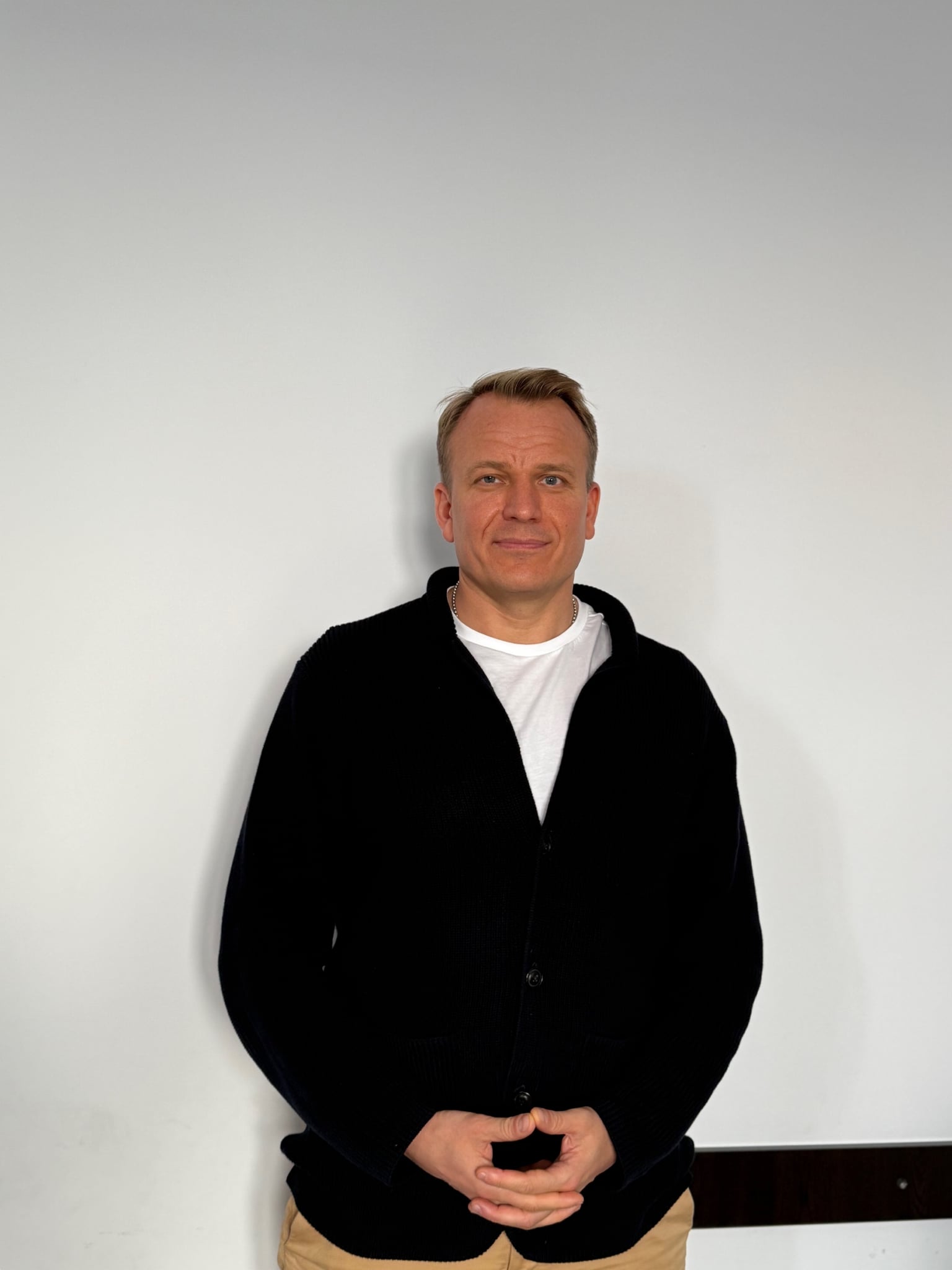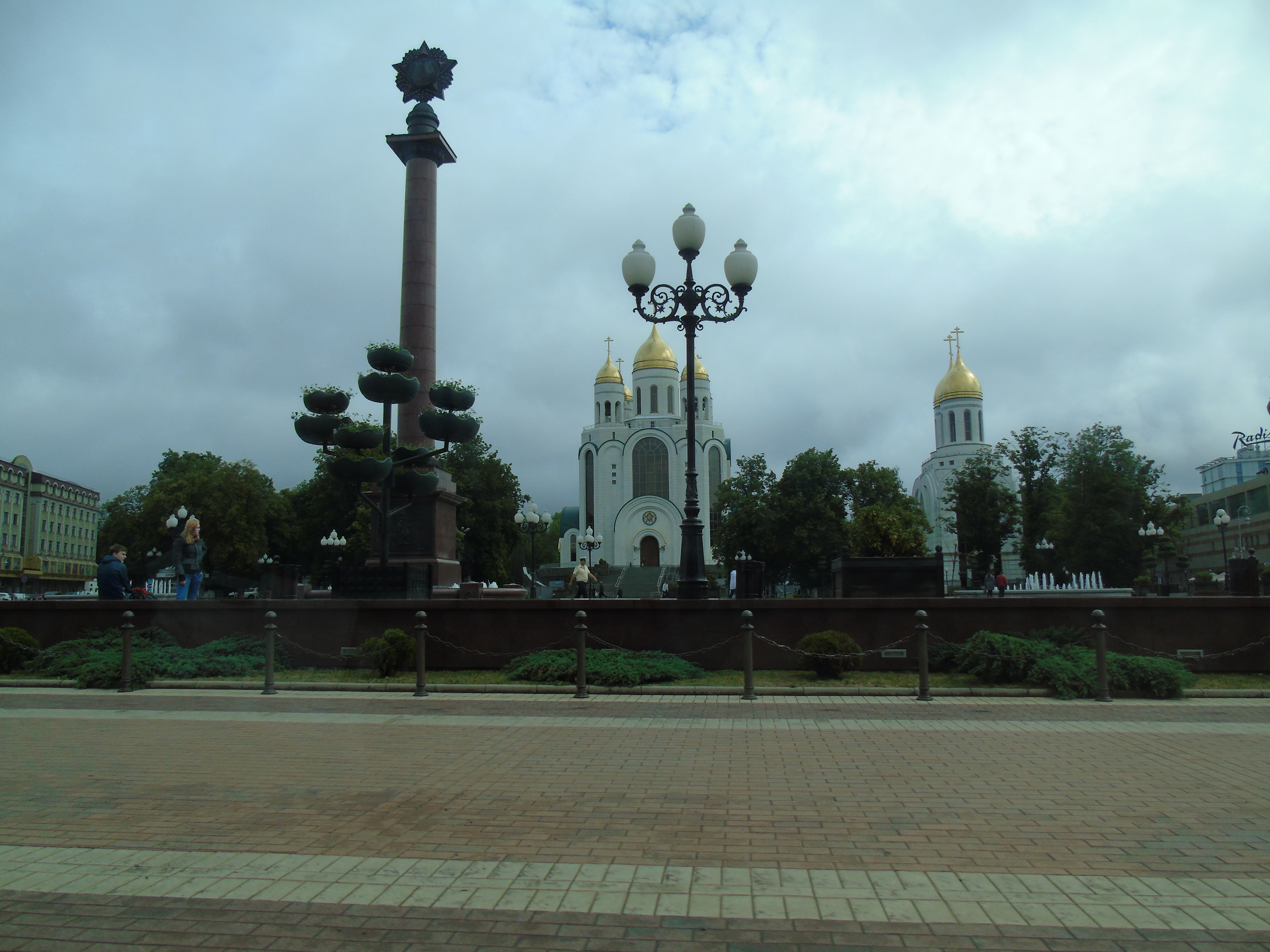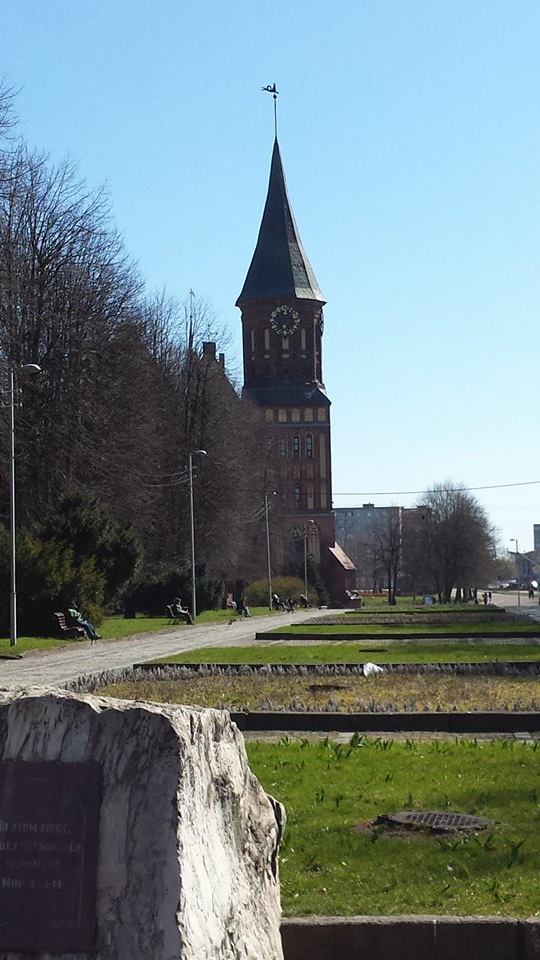The Königsberg region is living on a powder keg. There are not even any potatoes there.

- Goods are now mainly brought to Königsberg by ferry. Trucks with cargo wait in long lines in St. Petersburg. Unless they pay a bribe to skip the line.
- The Russian state subsidizes passengers' flights from Königsberg to Moscow or St. Petersburg. However, the money is not enough for the whole year.
- The central government does not want greater economic freedom for the region, nor greater subsidies for its functioning. The rhythm of life is regulated by the army - Königsberg is one large garrison.
What is life like in the region after the Russian aggression against Ukraine?
- The region currently has unprecedented transport restrictions. There has never been a situation like this before. Although, of course, this is not a complete lockdown. The restrictions have greatly changed the lives of residents of the entire region.
It is true that the transport corridor through Lithuania is functioning, but in a way that has been very limited by the Lithuanian authorities. The Lithuanians have also increased transit fees for Russian goods by about 30 percent. This means that transit deliveries are not only smaller, but also more expensive.
In addition, as a result of sanctions, deliveries from EU countries have ceased. Only small quantities of goods, not covered by sanctions, remain.
The enclave authorities must therefore organize sea transport from St. Petersburg. However, there are still too few cargo ferries there. Each of them makes five or six trips a month. The costs of such transport are also very high - one truck costs 1.5 thousand dollars. In addition, there are port fees and drivers' salaries. Such transport can only function if the state subsidizes it. This costs about 4.5 billion rubles a year - about 45 million euros.
In addition, these sea transports are very unstable. Ferries have to be periodically repaired, which means that this resource is out of the system for several months. New ferries are needed, which the authorities do not have money for. The weather sometimes plays tricks on us, leading to delays in deliveries.
In front of the ferry ports, huge queues form. You have to pay a bribe to skip the queue. It is an open secret how the entire corrupt system of skipping the queue works.

Until the introduction of Western sanctions, many transport companies operated in the region.
- There were even more than eighteen hundred companies. They worked mainly on the transportation of goods between the countries of the Union and Russia. Now there are about 1,300 transport companies left. These companies have largely "emigrated" to "greater Russia". This is a loss for the local budget in the amount of several billion rubles. About a thousand trucks and four thousand drivers have disappeared from the region .
In addition, those who wanted to move to "great Russia" had to pay a special duty for their trucks. Import to Königsberg was subject to certain allowances. The average duty surcharge for one truck was (depending on its age) up to 15 thousand dollars. And those cars that remained in Kaliningrad are gradually being "cannibalized" due to the absolute lack of spare parts.

However, there is a system of subsidies for passenger air transport.
- The state continues to subsidize these flights and their tickets. However, the size of these subsidies is gradually decreasing. This year, the subsidies are not to exceed 450 million rubles - about 4.5 million euros, more than twice as much as last year. This will be enough for no more than 60 thousand "discount" tickets.
Already in February of this year, 85 percent of subsidized tickets were sold. The largest pool of these tickets was purchased not by residents of the region, but by visitors from all over Russia.
Last year, when there was no money for subsidies, the authorities increased the amount of subsidies by another 500 million rubles. This allowed for the distribution of an additional 100,000 tickets at reduced prices. Whether this situation will repeat itself this year remains to be seen.
Without these tickets, the region is practically isolated from the rest of Russia, because commercial airfare prices are very high. The only alternative is a transit train through Lithuania. But then you need a passport. Most Russians (Königsberg is no exception) do not have such documents.
Administrative ban on the export of potatoes from the Königsberg regionAt an economic forum in St. Petersburg, the governor of Königsberg, Alexey Besprozvannykh, boasted about agreements on business investments in the region. Are these real investments?
- This is pure propaganda and showing a reality that does not exist. Last year, at this very forum, declarations were made that all-Russian structures are to invest billions of rubles in regional agriculture . I do not see these investments.
Now I see more declarative memoranda. These declarations were made by representatives of the state-owned company Rosatom. What this Rosatom would do in the region is unknown, since the construction of the nuclear power plant was stopped long ago.
The regional car manufacturer Avtotor was also supposed to be the beneficiary of the contract. This company assembled BMW cars (from imported parts) in-house. They were then sold deep into Russia. Due to sanctions, Avtotor began assembling Chinese cars. However, it is too large a plant for the needs of the region. And importing Chinese parts here and then sending the finished cars deep into Russia is already economically pointless. It would be easier to move the entire plant near the border with China.
These agreements – declarations were necessary, however. Because how would it look – the governor went to the forum and did not settle anything? Besprozvannykh, like his predecessor Anton Alikhanov, is a Moscow official who wants to show the capital that it is worth betting on him and preparing for him some good ministerial position in Moscow.

The oblast also has large agricultural areas.
- It was here that the former mayor of Moscow, Yuri Luzhkov, who died in 2019, developed his agricultural empire. The region's rulers boasted that there was a system of subsidies for agricultural production, no worse than in the European Union. However, the subsidies were distributed "on a discretionary basis", without any systemic arrangements, which in itself is corruption-prone.
In addition, the entire region has destroyed, post-German drainage systems, which leads to flooding of large areas. The region could feed itself, as an agricultural region, but the destroyed drainage system has not been rebuilt to this day.
Since 2010, theoretically, many land improvement works have been carried out in the district. A lot of budget money was spent on this, which, as it turned out, was stolen. How can you check work whose effects are underground? These scandals resulted in several lawsuits, but probably not all the "land improvement workers" were caught.
Thus, the agricultural land improvement system is still ineffective. Many areas are still flooded every year. Although billions of rubles are still spent on agriculture in the region, the results are very limited. There is more and more local meat and milk, but the quality of these products is not satisfactory. People remember agricultural products from Poland and Lithuania as models. Therefore, if the borders were to be reopened, customers would vote with their wallets for imported food.
Currently, however, milk and cereals fully satisfy local demand. Fruit and vegetables, however, only cover 3/4 of the needs. Kaliningrad agriculture is reaching the peak of its possibilities. Here, the example of potatoes is significant. Relatively high yields were achieved when imported seedlings were available. Now Kaliningrad farmers use domestic material, and the yields are getting lower and lower. This caused shortages in stores. Potato prices have jumped significantly . This situation has led to an administrative ban on the export of potatoes from the region.
The regional authorities tried to present the oblast as a future area for tourism.
- Tourism was supposed to be a chance for the region. There is a sea here, an interesting history. The people who come to Królewiec are mainly Russians who cannot travel abroad. They are mainly representatives of the law enforcement agencies, officials.
Since the aggression against Ukraine in 2022, we have seen a steady increase in the number of tourists. In 2019, it was 1.7 million, in 2022 1.9 million, in 2023 2.1 million tourists came to the region, and last year 2.4 million. These are mainly Russians from other regions of the country. Of these, 95% are visitors from Moscow and St. Petersburg. Foreign tourists are less than 2%, mainly citizens of the former USSR from Kazakhstan, Belarus or Armenia.
The most popular parts of the region are the seaside (Svetlogorsk, Zelenogradsk, Curonian Spit) and Królewiec itself. Tourist arrivals are limited, however, by the high price of air tickets. The commercial price for such a flight is no less than $150 one way. It is cheaper to travel through Lithuania by train, but an international passport is required there.
The increase in arrivals is over 30% in the last period, but at the same time the number of hotel beds has increased by no more than 15%. In addition, many private accommodations do not meet the standards required by visitors. And there is no sign of new hotel investments.
In the region, they are of course trying to "monetize" tourist traffic, so they introduced an "ecological" fee. However, it is still only a seasonal business, from the peak of May to mid-October. In addition, tourists who came here earlier were interested in short trips to Poland. Now there is no such possibility.
The future of Königsberg in military colorsSo what does the economic future of the region look like?
- The authorities in Moscow would like to contribute as little as possible to the maintenance of the region, but this would require greater economic freedom. The alternative is less freedom, but greater subsidies. Moscow does not want either of these options.
The regional economy was subjected to shock therapy overnight, related to the aggression against Ukraine and the accompanying Western sanctions. And all logistics were geared towards cooperation with the West. Suddenly, it stopped .
The region has gone from the gateway to the survival economy. TV and washing machine assembly plants have left the region. The domestic market is too small, and it is cheaper to produce for "greater Russia" somewhere near Moscow.
Fish processing is also practically dying. Because there is a lack of raw material – fish. This is due to the decrease in the number of fishing vessels that have Królewiec as their home port.
Tourism is not a breakthrough in income. So there are central subsidies and investments in military infrastructure. This gives a chance for survival, but not for development. This will be the case as long as Russia pursues an aggressive policy.
At the beginning of this century, there was talk of separatist tendencies in the region. Sergei Pasko was active at the time, and his Baltic Party advocated for the region to join the European Union, but to remain within Russia's borders. What do these sentiments look like now?
- In Königsberg, after the anti-war protests of February 2022, many people were arrested, those who needed to were intimidated, and there was ... silence. In addition, censorship is still in effect, which does not allow any critical comments about Putin's actions. The residents of the region felt the closure of the borders particularly strongly.
The fear of any protests was aroused by the large garrisons of the Russian army and the soldiers who were brought here from all over Russia. Although some of the residents of the region – either out of convenience or conviction – succumbed to the central propaganda.
Emigration is also growing at the same time, which has intensified since the beginning of the aggression against Ukraine. This is confirmed by all statistical data. However, the idea of separatism itself is not popular in Königsberg. In the 1990s, it was a topic, but it disappeared at the beginning of the century, along with the growth of incomes – fueled by revenues from oil and gas.
The history of Russian-European talks in Brussels on granting residents of the region the right to visa-free entry to EU countries is symptomatic here. Suddenly, it turned out that there were more people entitled to such status than… residents of the region. So Brussels broke off any talks on this issue (feeling cheated).
The ideas of separatism were also fading for another reason – it was publicized that the region could only survive thanks to subsidies. At the same time, it was emphasized that the EU would never subsidize Kaliningrad like Russia. However, something from the 90s remained. In our heads! A resident of the region says that he is going "to Russia", thinking about a trip to Moscow or St. Petersburg. Behind this term there is a sense of a certain separateness.
On the other hand, these same residents generally agree that Kaliningrad is a region threatened by NATO forces. That is why the militarization of the region is accepted with calm. There are many land forces with lots of tanks in the region. Królewiec is the headquarters of the Baltic Fleet. There are also Iskanders, with the possibility of arming them with nuclear warheads.
In addition, a large part of the residents served in the units stationed here. There are also many family ties to the military. This also leads to the entire community being mentally militarized. The numerous military holidays are in fact holidays for the entire community. And the local media like to present the deployment of NATO troops around the perimeter. This leads to a certain war psychosis and a sense of living on a powder keg . This is evidenced by data on the increasing sales of sedatives in pharmacies.
Is it visible in Königsberg that many units have been sent to the Ukrainian front?
- The media raises the argument that Russian troops should concentrate on the border with Finland and on the front of the fight with Ukraine. In these calculations, Królewiec is not a priority. It is assumed that the Iskanders deployed in the region in 2018 will be enough for deterrence. In addition, local commentators have stated that any conflict with the West until the end of the war in Ukraine is unrealistic.
wnp.pl





